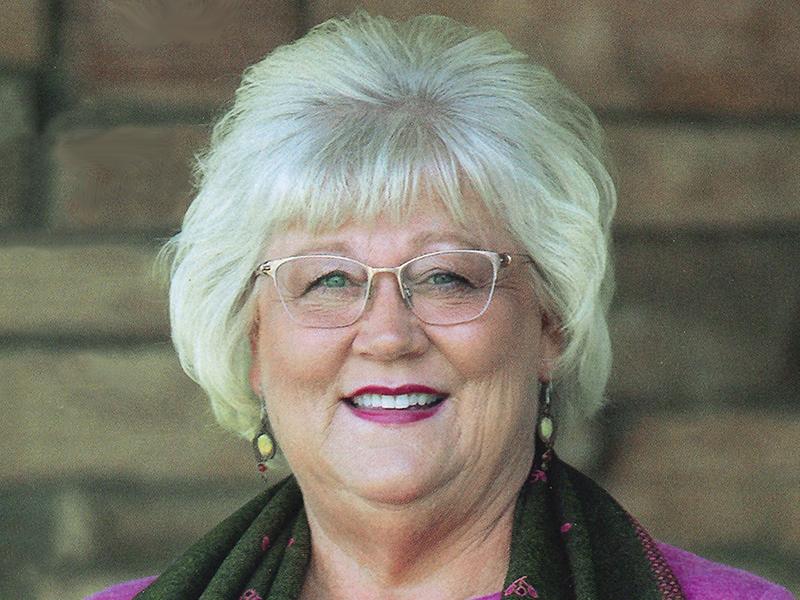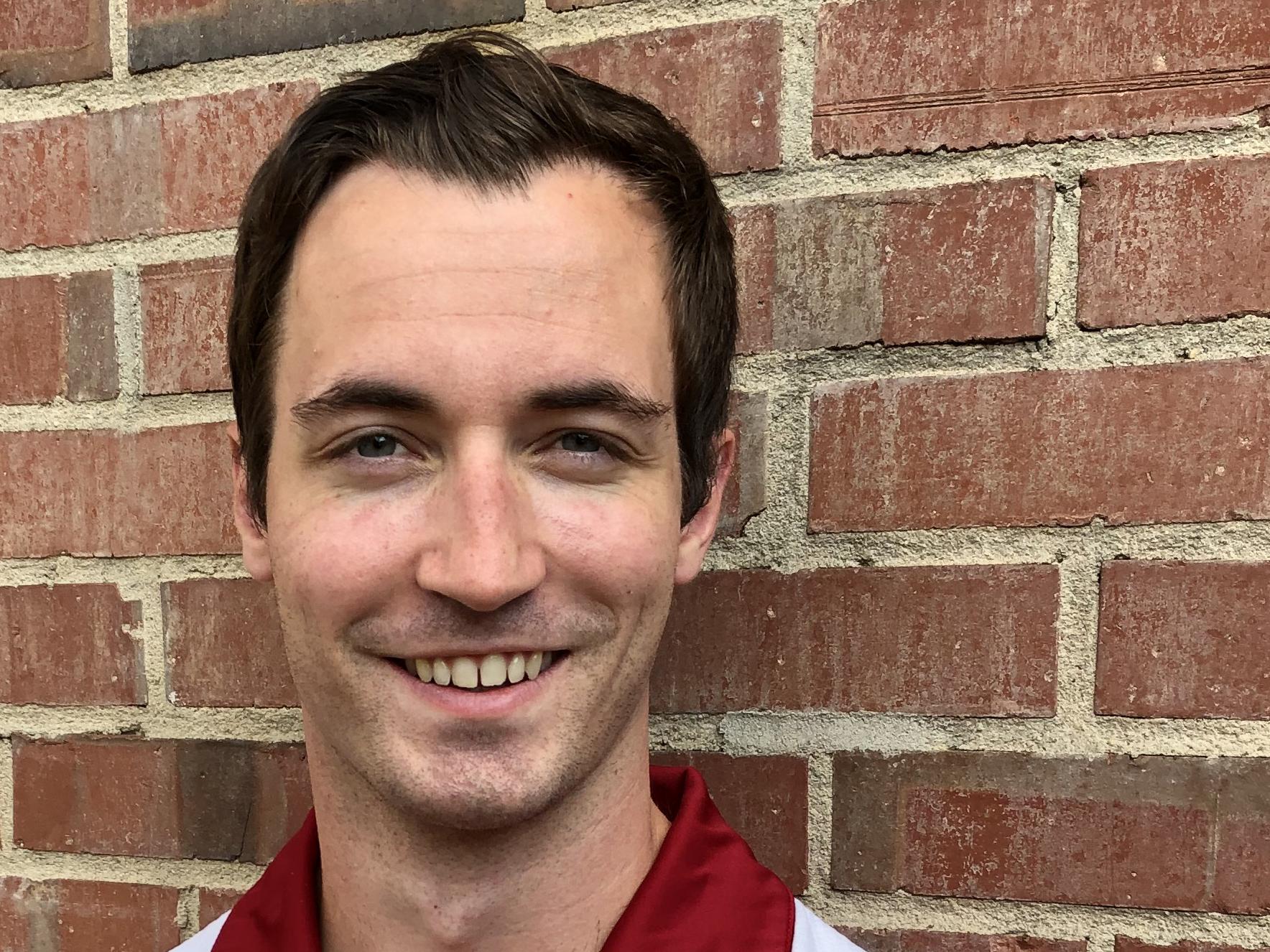
It’s just after 11:30 on a Tuesday morning as the empty Hunger Task Force delivery truck pulls away from the two-car garage that houses the Place of Grace food pantry. The pantry opens at noon, and getting the weekly drop-off in place on the shelves before opening seems daunting. Boxes and boxes of food staples are piled up everywhere: canned soups, fruits and vegetables, pasta, “fresh” produce, oat milk, past-dated deli items, rectangular logs of processed cheese, even a can of coconut milk.
It should be stressful, but house coordinators Alex Diciaula, Aaron Rasch and Nick Herlitzka radiate calm and inner peace as they quickly tame the chaos, ready with time to spare. Familiar visitors straggle in and are greeted warmly. In the pantry, guests can take whatever they need or want, no questions asked. They aren’t customers. They aren’t recipients of service or charity. They are dear friends.

That’s called “radical hospitality,” and it’s the heart that beats in Place of Grace. “Our basic philosophy, our mandate, if you will, is treat each person who comes through the doors as if they were Christ Himself,” said Tom Thibodeau, a longtime Viterbo University faculty member and founder of Place of Grace and the university’s servant leadership graduate degree program. “You want to change the nature of what’s happening in this country, in our world? Treat each person as if they were Christ himself, as if they had God-given dignity as their birthright and honor that. That changes everything.”
Place of Grace is four blocks south of Viterbo on Hood Street, but with all the connections to the university, it could be considered an integral part of the Viterbo experience. Hospitality is one of the institution’s five core Franciscan values, and countless students have served there over the years.
Thibodeau is Viterbo’s strongest and longest connection to Place of Grace, which began 25 years ago. Back then, Thibodeau already had been teaching a homelessness class at Viterbo for years, and he would take his students to a Catholic Worker house in Omaha, Nebraska. They stayed at the house and served meals to 300 to 400 people per day, gaining insights on radical hospitality espoused by Dorothy Day, a social activist and co-founder/editor of the Catholic Worker newspaper who is credited with founding the Catholic Worker Movement in the 1930s.

La Crosse needed a house of hospitality like the one in Omaha, Thibodeau believed, and one day walking from Viterbo to the nearby Walgreen’s he passed the now-gone house of Sister Grace Clare Beznouz, FSPA, the driving force behind Viterbo’s nursing school. Thibodeau thought it would be a good site for a hospitality house and he knew just what to call it: Place of Grace, in honor of Beznouz. That location didn’t work out, but the name stuck.
In the summer of 1996, Thibodeau shared his Place of Grace idea with his students. “I always think it's important to speak your hopes out loud, so that people hold you accountable. And they also come to your aid,” he said.
And the aid did come. The two summer classes he was teaching each spontaneously raised $350. With $700 in hand, Thibodeau and his friend Joe Kruse, an administrator at what was then St. Francis Hospital, invited a group to meet at 7 a.m. at the hospital bakery. “It’s always good to gather at an inconvenient time, because the people who are most committed are going to show up, and 11 of the 12 people that we asked to come, came,” he said.
The search for a suitable house ended, poetically, on Christmas Eve 1996, when a vacant two-story brick house at 919 Hood St., which had been a home for recently released female inmates, was suggested.
On Jan. 1, 1997, Place of Grace opened its doors with Michelle “Mickey” Collins and Marilyn Pedretti as the first live-in house coordinators. Pedretti, a sophomore Viterbo ministry major in her mid-30s who was part of the Place of Grace organizing committee, had spent two years in a Catholic Worker house in Kansas City where they fed 200 to 300 people per night, six nights a week.

The volume of guests and the level of hardship was different at Place of Grace, but the approach was basically the same. For house coordinators, Pedretti said, “serving and simple living was the key. You shouldn’t be able to tell any difference between the guests and those who live and volunteer at Place of Grace.”
For the first weekly meal at Place of Grace, there were 20 volunteers and eight guests. Word started spreading and the next week there were 20 guests, and the week after 40 people came. Over the years as many as 200 meals have come out of the Place of Grace kitchen on a communal meal night, and countless people in the neighborhood have gotten through hard times with visits to the food pantry.
Place of Grace, of course, isn’t just about food. Guests might find a coat there to get through the winter. They might stop by to do laundry. Neighborhood kids can come romp on the nautical play structure in the backyard. People come over for a cup of coffee and a talk. Many have come for the Monday morning prayer and contemplation group, and the house has seen the joy of wedding celebrations and the sorrow of memorials for friends lost. The common thread is a sense of community.

Kruse and his wife, Jane, have been involved since the beginning, and their oldest son, Ben, even spent a couple years as house coordinator. “It’s kind of a cool milestone, but it doesn’t really feel like 25 years have passed,” Kruse said. “The people who have been part of our lives because of that work and the experience of the Place of Grace over the years has really enriched our lives tremendously.”
Kruse didn’t know much about Dorothy Day when Place of Grace opened, but he got the chance to get to know someone who knew her. Florence Hackner, who lived near Place of Grace, spent time as a young woman at a Catholic Worker house in New York, where she got to spend time with Day.
Hackner had such a high opinion of what they were doing at Place of Grace that toward the end of her life she decided to bequeath her house to Place of Grace. Kruse recalled visiting her as her health was failing and asking her what she wanted them to do with her house.
With a twinkle in her eye, she said, “Do something that will piss off my neighbors,” Kruse recalled with a laugh.
They didn’t necessarily follow Hackner’s wish. After Hackner died, Kruse said they were able to offer the house to a family that had been living out of a car, giving them a chance to get back on their feet.
“That’s a cool memory,” Kruse said.

Almost all the house coordinators over the years have had Viterbo connections. If they haven’t been a student or graduate, they’ve found their way to Place of Grace through Viterbo. Before it had been open a year, Place of Grace was incorporated into the curriculum of a Viterbo class, and countless Viterbo students have given of their time as volunteers there.
“There have always been Viterbo students involved with us from the very beginning, and they’re such a breath of fresh air,” Kruse said. “Viterbo students are just bent that way anyway. They’re very much interested in being involved in service.”
Current house coordinator Alex Diciaula graduated from Viterbo in 2015 with a bachelor's degree in sociology. He was working at Chileda when he decided to return to Viterbo for graduate studies in mental health counseling.
As a Viterbo basketball player, Diciaula had been inspired by Thibodeau, who was the team’s chaplain, but it was Aaron Rasch, a graduate of Viterbo’s Master of Arts in Servant Leadership program and house coordinator at the time, who connected Diciaula with Place of Grace. When the pandemic forced Diciaula to close his yoga studio, he came to the Place of Grace pantry, where Rasch, one of Diciaula’s yoga students, suggested he’d be a great fit for the house coordinator role.
“It was really just a perfect opportunity,” said Diciaula, who completes his master’s degree work this semester.
Place of Grace still hosts weekly meals, but they only have 10 diners at most because of the pandemic. Most of the food prepared for the weekly meal during the pandemic has been delivered to people experiencing homelessness, at Cameron Park, then Houska Park and now, with the weather turning cold, to the shelters that provide refuge in the winter.
Thibodeau, Pedretti, Rasch and Diciaula all say Place of Grace’s main mission isn’t feeding people or somehow fixing them. “It’s about building connections, direct connections, not providing services,” Rasch said. “What appeals to me about Place of Grace is it puts you closer to people. There’s a drawback to having a hard line of defense in dealing with social problems, a separation from people. I came in here frazzled, stressed, treating my work as a burden. Now, I show up and be present. That’s vital. We have to meet people where they are.”
HOW TO HELP: Send financial support for Place of Grace to P.O. Box 0366, La Crosse, WI 54601-0366









